Back to series
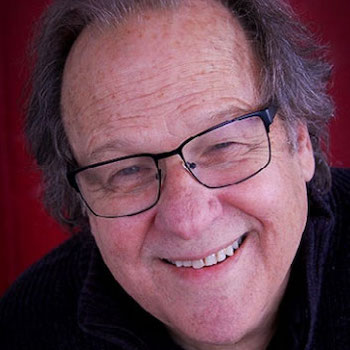
Recommended Reading:
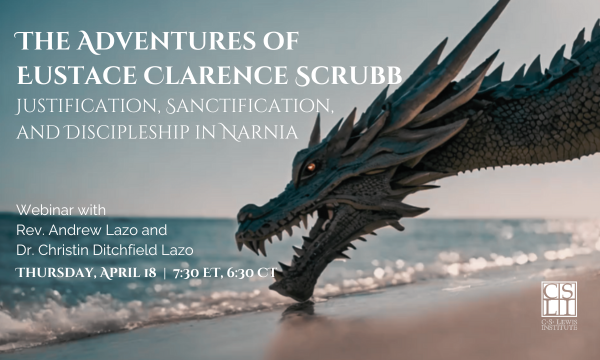
God’s Plan for Our Growth
Click here to open a Print - Friendly PDF
| The human race has a character flaw: sin. We have a “sinful nature.” In the Greek the word is sarx; in older translations it is rendered as “the flesh.” The Bible portrays us as spiritually and genetically addicted to sin. It is a virus that infects everything. Whatever sin infects turns terminally malignant. Sin is a power that addicts, infects, enslaves, and destroys.
The presence, actions, and power of sin are described by the apostle Paul in the context of his own character struggle.When I want to do good, evil is right there with me. For in my inner being I delight in God’s law; but I see another law at work in the members of my body, waging war against the law of my mind and making me a prisoner of the law of sin at work within my members. What a wretched man I am! Who will rescue me from this body of death? (Rom. 7:21–24)1The answer to Paul’s desperate plea, who will rescue me from slavery to sin? is God.Salvation is the comprehensive term we use to describe God’s rescue. We have terms to expound and explain the process of God’s rescue; two of these are justification and sanctification. Justification is what God does for us, and sanctification addresses what we must do in response. By means of justification and sanctification, we are empowered to fight the battle of sin and be enriched by God’s blessings. JustificationBriefly, justification can be defined as God’s saving actions in Christ applied to sin-infected beings. Justification is a rich and complex term that needs to be unpacked. We will look at it from two different angles: the blood of Christ and spiritual union with Christ. The Blood of Christ“All have sinned and fall short of the glory of God, and are justified freely by his grace through the redemption that came by Christ Jesus. God presented him as a sacrifice of atonement, through faith in his blood” (Rom. 3:23–25). Justified is a legal term taken from the courts. To be justified means that the accused is declared innocent of the charges—not guilty. The prisoner is released and given a clean record. Redemption is a term taken from the slave markets. To be redeemed means that someone paid off the slave master, and the slave is now a freed person. Propitiation is a Greek word, translated in the New International Version as sacrifice of atonement. The word is taken from the temple system. The consequences for failing to keep the stipulations of the covenant fall on the substitutionary sacrifice; the worshiper is pronounced clean and is reconciled to God. Putting together these three images, justification means that an amazing change has taken place: the sinner is no longer guilty of sin; the slave is no longer a slave; the covenant breaker is no longer estranged from God. Justification means that there is a change of status: from guilty to not guilty, from slave to free, from foul to clean. This change of status takes place by means of the blood of Christ. The centrality of the death of Christ is in view when we speak of the “cross of Christ.”
Gospel-hymn writers of earlier centuries embraced the blood of Christ in ways that can seem strange to twenty-first-century readers. “What can wash away my sin? Nothing but the blood of Jesus” (Robert Lowry). “There is power, power, wonder-working power, in the blood of the Lamb” (L.E. Jones). “There is a fountain filled with blood, drawn from Immanuel’s veins” (William Cowper). Living in a world preoccupied with the dimension of the physical makes it hard for us to grasp such a spiritual power available by means of the blood of Christ. To really embrace the wonder of Christ’s blood that produced justification, we need the broader rationality that allows us to take out all the pieces in the puzzle box, not just the ones that are acceptable to a materialistic and rationalistic age. C.S. Lewis, in The Lion, the Witch and the Wardrobe, used the death of Aslan to portray the mysterious power of the blood of Christ. Aslan dies in the place of the traitor, Edmund. Susan and Lucy are filled with grief. They are shocked and thrilled when they discover Aslan alive the next morning. Aslan explains: “It means,” said Aslan, “that though the Witch knew the Deep Magic, there is a magic still deeper which she did not know. Her knowledge goes back only to the dawn of time. But if she could have looked a little further back . . . before Time dawned, she would have read there a different incantation. She would have known that when a willing victim who had committed no treachery was killed in a traitor’s stead, the Table would crack and Death itself would start working backwards.”2 The power of justification is activated by faith. We must believe it. Martin Luther unleashed the Reformation because the teaching of justification by faith captured his heart. He understood that no power on earth, not even good intentions and good works, was enough to save us from sin. Faith was the power that opened the soul’s door to receive salvation. Luther said: Faith is God’s work in us that changes us and gives new birth from God (John 1:13). It kills the Old Adam and makes us completely different people. It changes our hearts, our spirits, our thoughts and all our powers. It brings the Holy Spirit with it. Yes, it is a living, creative, active and powerful thing, this faith. Faith is a living, bold trust in God’s grace, so certain of God’s favor that it would risk death a thousand times trusting in it. Such confidence and knowledge of God’s grace makes you happy, joyful and bold in your relationship to God and all creatures.3 Faith in the justifying blood of Christ changes our status and has soul-shaping power. Peter Haile, in his little classic on the Christian faith The Difference God Makes, writes of a friend who was feeling out of touch with God and consequently upset, disturbed, and edgy. “But aren’t believers promised joy and peace?” I stopped him and said, “Yes, Believers are promised joy and peace . . .” It was his failure to take God at his Word, to act on the assumption that God really means what he says—that was the trouble.4 Faith not only receives but unleashes God’s saving power. In a discussion about spirituality and mental health, a doctor at a psychiatric institution commented, “Half the people in here could walk out today if they could believe that they were forgiven.” Spiritual Union with ChristBut really, how is it that what Jesus Christ did two thousand years ago makes a difference today? In Mere Christianity (Book 4) C.S. Lewis notes that we have to have a new view of time in order to make sense of Christianity. The Greek word chronos refers to time as a succession of moments. The Greeks had another word for time that is more than a succession of moments: chairos is an eternal view that transcends the moment.
The New Testament writers understood that it was possible to be “in Christ” and for Christ to be in us in a way that leaps over the moments. It is this eternal time and spiritual connection that makes Christ’s blood work for us. When we view time in this way, we have a true and immediate connection of to Christ. Although he was not present at Christ’s crucifixion, the apostle Paul could say: “I have been crucified with Christ and I no longer live, but Christ lives in me. The life I live in the body, I live by faith in the Son of God, who loved me and gave himself for me” (Gal. 2:20). In these words we have spiritual participation in the person and work of Christ that is not restricted by time or by space. This way of seeing life in Christ is pervasive in the New Testament. Consider: Therefore, if anyone is in Christ, he is a new creation; the old has gone, the new has come! (2 Cor. 5:17) If we have been united with him like this in his death, we will certainly also be united with him in his resurrection. (Rom. 6:5) Believers are in Christ and with Christ in all that has happened to Him. “God, who is rich in mercy, made us alive with Christ even when we were dead in transgressions . . . And God raised us up with Christ and seated us with him in the heavenly realms in Christ Jesus” (Eph. 2:4–6). This mystical union was at the heart of the teaching of the great Reformer John Calvin. First, we must understand that as long as Christ remains outside of us, and we are separated from him, all that he has suffered and done for the salvation of the human race remains useless and of no value for us. Therefore, to share with us what he has received from the Father, he had to become ours and to dwell with us.5 “In Christ” is a mystical/spiritual union that becomes a believer’s new identity. Origen, a teacher in the early church, wrote, “He became what we are that we might become like He is.” Because Jesus died to sin, those who believe in Him have died to sin as well. Because Jesus has been raised from the dead, we are raised from the dead. Because God has raised Christ to the heavenly realms and seated Him at His right hand, we too have been raised to the heavenlies and are seated at God’s right hand. As a result of our mystical union with Christ, my identity is now that of Christ; this means I am justified and no longer guilty of sin, no longer estranged from God, no longer a slave to spiritual forces that would overpower and deform me. SanctificationNow that we are justified, we can share in the process of sanctification: growth in holiness and character development. Sanctification means that we are now free to make moral choices that prior to justification we were not able to make. Sanctification means that we now can say no to that which is not good and right and yes to that which is pleasing to God. Therefore do not let sin reign in your mortal body so that you obey its evil desires. Do not offer the parts of your body to sin, as instruments of wickedness, but rather offer yourselves to God, as those who have been brought from death to life; and offer the parts of your body to him as instruments of righteousness. For sin shall not be your master, because you are not under law, but under grace. (Rom. 6:12–14) Character requires restraint. Some years ago in a famous study, researchers put young children in a room and placed a marshmallow in front of each of them. They were left alone and told not to eat the marshmallow until the researcher returned. If they were able to restrain themselves, they would get the marshmallow and a reward. Some of the children were able to restrain themselves; others were not. Over the next thirty years the children who participated were tracked. Many of those who were not able to restrain themselves lived in poverty and prisons. Most of those who were able to restrain themselves became professionals and lived what most would describe as successful lives. Morality of course is about more than restraint. It is about saying no to sin and yes to God. The Greek word for sanctify means to “make holy.” To become holy means that we grow so close to God that we share in the character of God and live in ways that are pleasing to God.
It is important to note that these traits are indeed the fruit of the Spirit; that is, they are not the result of merely doing one’s duty by the exercise of willpower. The fruit of the Spirit is the manifestation of the character of Jesus Christ that grows in our lives as, by faith, we live in Him and He lives in us. A person of good character used to be described as virtuous. A virtuous person is skillful, even artful, in doing good. In his book After Virtue, Alistair McIntyre traced the sources of the moral crises of modern culture to the loss of virtue. For the individual, in Mere Christianity (Book 3) C.S. Lewis addressed what sort of behavior God expects of Christians. He explored the four classic virtues and added the three theological virtues; these seven provide a helpful picture of good character: prudence, temperance, justice, fortitude, faith, hope, and love. Jonathan Edwards, a leader of the First Great Awakening in colonial America, described the character produced by sanctification in his classic Religious Affections. “The strength of a good soldier of Jesus Christ appears in nothing more than in steadfastly maintaining the holy calm, meekness, sweetness and benevolence of his mind, amidst all the storms, injuries, strange behavior and surprising acts and events of this evil and unreasonable world.”6 Sanctification is about the process of becoming holy. Holy people are whole, full, complete, valuable, centered, and strong; they bring God’s presence as they bear the image of Christ. ConclusionOne of my sons is a heroin addict. He has been clean for a number of years, but each day brings new challenges; he never takes his sobriety for granted. He lives in Seattle but recently came back home to Cincinnati for a visit. He was careful about whom he called, as he didn’t want to be exposed to “friends” who might tempt him. He was also cautious about where he went; he even made sure that he went to bed before he became too stressed and tired. His goal is to live a healthy life, free from the power of addiction. He has been down the road of addiction and knows that it is a dead end. He doesn’t want to go that way anymore. His healthy choices and clean life take work; I am proud of him. Justification and sanctification are the means by which we have been empowered by God to face our sin problem head-on. It’s a battle for us too. Our goal should be to live so that God will be proud of us, and one day in the light of heaven we hear the divine accolade, “Well done, good and faithful servant” (Matt. 25:21). I have come to believe everything we experience is a vehicle for shaping our character. By every choice we make and in every action we take, we are either formed to be more like God’s Son, Jesus, or we are being deformed to something less than human. It is a serious thing to live in a society of possible gods and goddesses, to remember that the dullest and most uninteresting person you talk to may one day be a creature which, if you saw it now, you would be strongly tempted to worship, or else a horror and a corruption such as you now meet, if at all, only in a nightmare. All day long we are, in some degree, helping each other to one or other of these destinations. It is in the light of these overwhelming possibilities, it is with the awe and the circumspection proper to them, that we should conduct all our dealings with one another, all friendships, all loves, all play, all politics.7 |
|||
| Notes: 1. Unless otherwise noted, Scripture quotations are from the New International Version, 1984. 2. C.S. Lewis, The Lion, the Witch and the Wardrobe (1950; rprt., Macmillan-Collier, 1970), 160. 3. Martin Luther, An Introduction to St. Paul’s Letter to the Romans, trans. R.E. Smith, 1994; Johann K. Irmischer edition of Dr. Martin Luther’s Vermischte Deutsche Schriften, vol. 63 (1854), 124–125. 4. Peter Haile, The Difference God Makes (Downers Grove, IL: InterVarsity, 1981), 14. 5. John Calvin, The Institutes of the Christian Religion III.i.I. 6. Jonathan Edwards, Religious Affections (London: Banner of Truth Trust, 1986), 278. 7. C.S. Lewis, The Weight of Glory, quoted in C.S. Lewis, The Joyful Christian: 127 Readings (New York: Macmillan, 1977), 197. |
|||

Stephen Eyre
CSLI City Director, Cincinnati
Stephen Eyre is the Cincinnati City Director for the C.S. Lewis Institute. He is also the Minister of Congregational Development at Madeira-Silverwood Presbyterian Church as well as the Executive for Ministry Support for the 40 Day Prayer Covenant. Stephen is the author of many books and Bible study guides such as Christian Beliefs (InterVarsity Press), Ordinary People Extraordinary God: 17 Personal Stories of Lives Transformed by the Love of God (High Ridge Books), Patience: The Benefits of Waiting (Zondervan), and Spiritual Disciplines (Zondervan). He graduated from Covenant Seminary in St. Louis Missouri.

Recommended Reading:
C.S. Lewis, Mere Christianity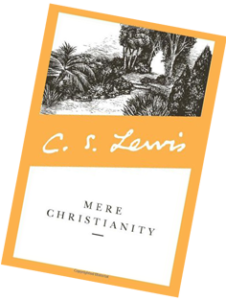
In the classic Mere Christianity, C.S. Lewis explores the common ground upon which all of those of Christian faith stand together. Bringing together Lewis’ legendary broadcast talks during World War Two from his three previous books The Case for Christianity, Christian Behavior, and Beyond Personality, Mere Christianity provides an unequaled opportunity for believers and nonbelievers alike to hear this powerful apologetic for the Christian faith.
 COPYRIGHT: This publication is published by C.S. Lewis Institute; 8001 Braddock Road, Suite 301; Springfield, VA 22151. Portions of the publication may be reproduced for noncommercial, local church or ministry use without prior permission. Electronic copies of the PDF files may be duplicated and transmitted via e-mail for personal and church use. Articles may not be modified without prior written permission of the Institute. For questions, contact the Institute: 703.914.5602 or email us.
COPYRIGHT: This publication is published by C.S. Lewis Institute; 8001 Braddock Road, Suite 301; Springfield, VA 22151. Portions of the publication may be reproduced for noncommercial, local church or ministry use without prior permission. Electronic copies of the PDF files may be duplicated and transmitted via e-mail for personal and church use. Articles may not be modified without prior written permission of the Institute. For questions, contact the Institute: 703.914.5602 or email us.
-
Recent Podcasts
The Side B Stories – Dr. James Tour’s story
by Jana Harmon, James Tour on April 12, 2024From a secular Jewish home, scientific scholar and...Read More
-
Why are Christians so Bad?
by Paul Joen on April 5, 2024
-
Questions That Matter Podcast – Dai Hankey and Gospel Hope for Weary Souls
by Randy Newman, Dai Hankey on April 5, 2024
-
Recent Publications
Isn’t Morality Relative?
by Christopher L. Reese on April 1, 2024It is widely accepted in the Western world...Read More
-
Do Muslims and Christians Worship the Same God?
by Andy Bannister on March 1, 2024
-
Artificial Intelligence and Its Impacts on Humanity
by John Lennox on February 13, 2024
0
All Booked
0.00
All Booked
0.00
All Booked
21934
GLOBAL EVENT: The Adventures of Eustace Clarence Scrubb (CSLI-Atlanta & CSLI-Chicago) 7:30PM ET/ 6:30PM CT
https://www.cslewisinstitute.org/?event=global-event-the-adventures-of-eustace-clarence-scrubb-csli-atlanta-csli-chicago-730pm-et-630pm-ct&event_date=2024-04-18®=1
https://www.paypal.com/cgi-bin/webscr
2024-04-18

Next coming event
Days
Hours
Minutes
Seconds
GLOBAL EVENT: The Adventures of Eustace Clarence Scrubb (CSLI-Atlanta & CSLI-Chicago) 7:30PM ET/ 6:30PM CT
On April 18, 2024 at 7:30 pm Virtual Online EventSpeakers

Stephen Eyre
CSLI City Director, Cincinnati
Team Members

Stephen Eyre
CSLI City Director, Cincinnati
Stephen Eyre is the Cincinnati City Director for the C.S. Lewis Institute. He is also the Minister of Congregational Development at Madeira-Silverwood Presbyterian Church as well as the Executive for Ministry Support for the 40 Day Prayer Covenant. Stephen is the author of many books and Bible study guides such as Christian Beliefs (InterVarsity Press), Ordinary People Extraordinary God: 17 Personal Stories of Lives Transformed by the Love of God (High Ridge Books), Patience: The Benefits of Waiting (Zondervan), and Spiritual Disciplines (Zondervan). He graduated from Covenant Seminary in St. Louis Missouri.



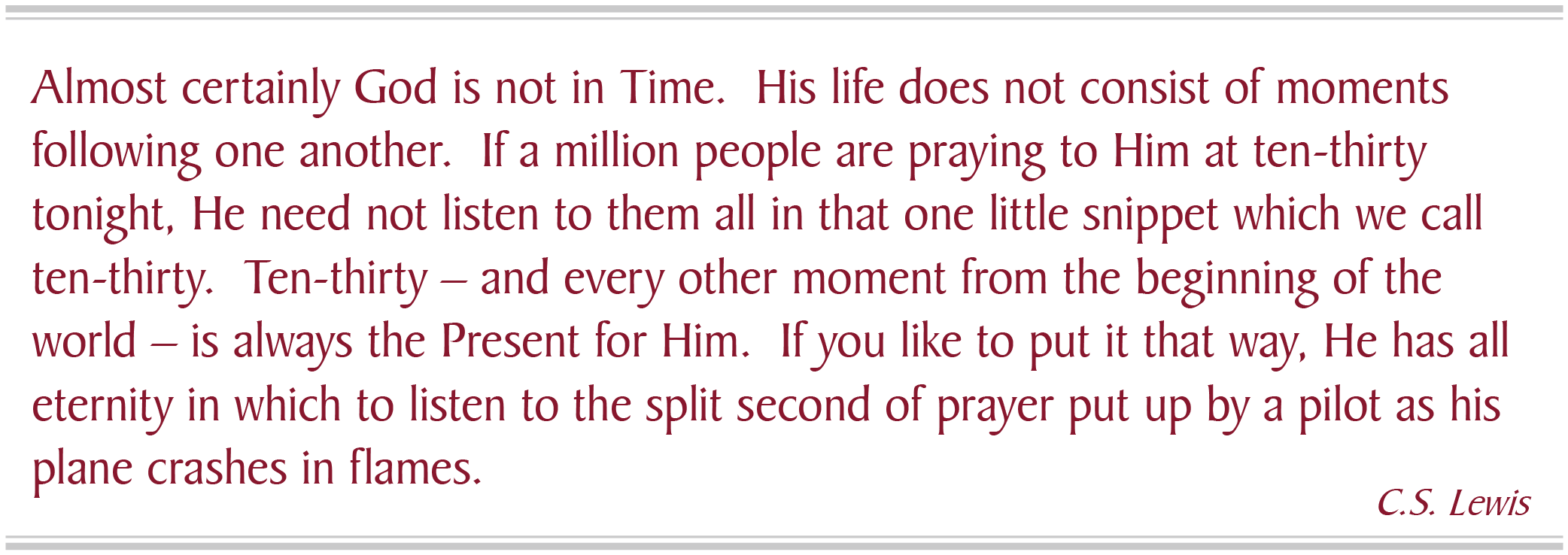 There is something mystical in the blood of Christ, some spiritual power at work. Sin is fatal. No one gets out of this world alive. For reasons that we can barely glimpse, Christ’s death is an acceptable substitute to God for the consequences of our sin; his death unleashes spiritual, transforming power.
There is something mystical in the blood of Christ, some spiritual power at work. Sin is fatal. No one gets out of this world alive. For reasons that we can barely glimpse, Christ’s death is an acceptable substitute to God for the consequences of our sin; his death unleashes spiritual, transforming power.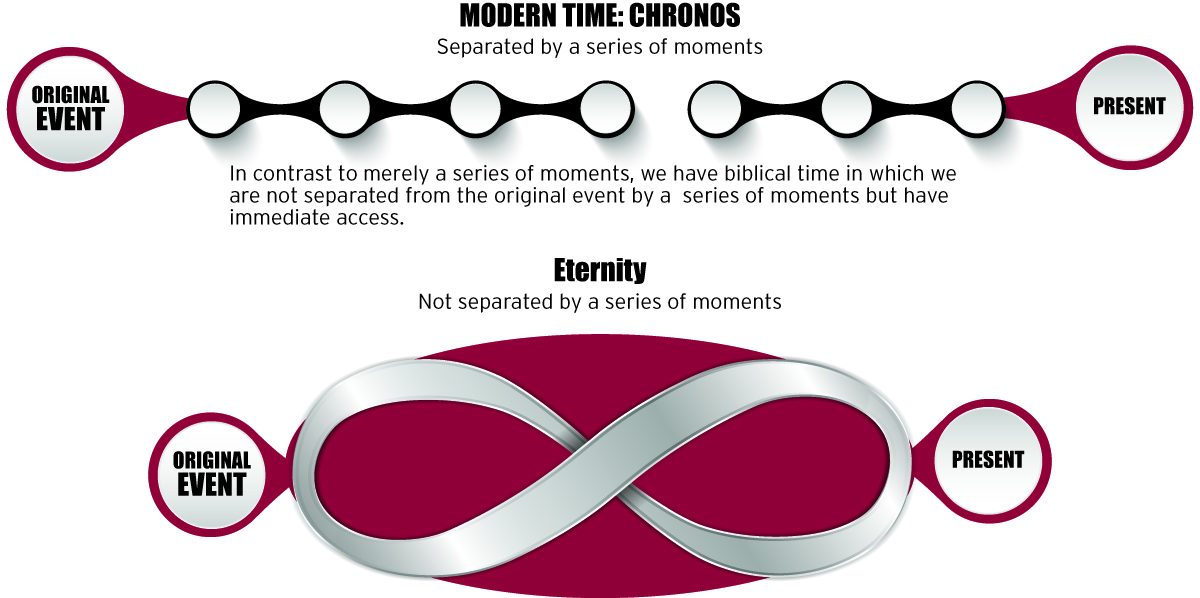
 Good character has “traits,” ways of thinking and acting that we can identity. Perhaps the most comprehensive list of character traits listed in the New Testament is the fruit of the Spirit: “love, joy, peace, patience, kindness, goodness, faithfulness, gentleness and self-control” (Gal. 5:22–23).
Good character has “traits,” ways of thinking and acting that we can identity. Perhaps the most comprehensive list of character traits listed in the New Testament is the fruit of the Spirit: “love, joy, peace, patience, kindness, goodness, faithfulness, gentleness and self-control” (Gal. 5:22–23).
